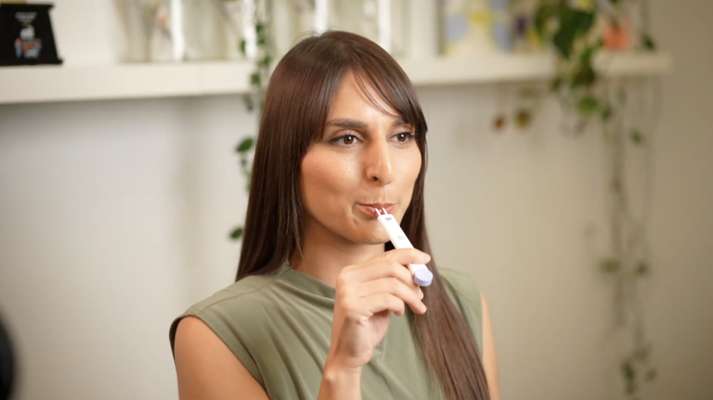Are Tampons Bad for You? Chemicals in Menstrual Products
Tampons are a very commonly used menstrual product since they offer some advantages. But are tampons bad for you?
Keep reading to learn some facts about tampons that you should know, including the pros and cons of tampons, what harmful chemicals are in pads and tampons, and whether scented tampons are bad for you.
Chemicals in Menstrual Products
It may seem like tampons and pads are just harmless cotton products, but they contain more chemicals than you’d expect.
There are three main types of chemicals in menstrual products to be aware of:
- Dioxin and poly-fluoroalkyl substances (PFAS)
PFAS are a family of manufacturing chemicals that have been found in menstrual products in recent years (including tampons advertised as ‘natural’).
They are concerning because they are linked to impacts on fertility, blood pressure, hormone disruption, and immune function, among others.
Another type of chemical linked with negative health impacts is dioxin, a by-product of the bleaching process used to produce tampons.
- Synthetic fragrances
Tampons that are scented may contain allergens and phthalates, which are associated with disrupting regular hormone function in the body.
- Herbicides and pesticides
Most cotton produced is genetically modified to be resistant to an herbicide called glyphosate , which is widely used to control weeds.
This chemical is absorbed by the plants, meaning it can be present in the cotton used to make tampons and pads. Chemicals like this are endocrine disruptors, which interfere with the body’s hormones.
What are the Toxins and Chemicals in Menstrual Products Doing to Your Body?
Here’s what you need to know about how chemicals and toxins in tampons can affect your body.
Chemicals that act like hormones in the body and interfere with important bodily processes are associated with several health issues, including endometriosis, uterine fibroids, polycystic ovarian syndrome, fertility issues, and cancer.
Although the levels of these chemicals in tampons are small, the fact that tampons are worn internally may increase the chances of absorption.
Pros and Cons of Using Tampons
Tampons are popular for a reason, but they also have their drawbacks. Here are the main benefits and disadvantages of using tampons, starting with the good…
Greater Freedom of Movement
Wearing a tampon allows you to swim and engage in other forms of exercise more easily compared to wearing a pad since tampons are less bulky and create a seal to prevent the leakage of blood.
Less Odour
Since tampons are inserted inside the vagina, there is no odour or irritation of the skin that may happen with pads, which can start to smell bad due to moisture and warmth.
Less Visible
Tampons are lightweight and discreet, both to carry and while wearing. Because they are less visible than pads, it makes it easier to wear certain types of clothing without making it obvious that you’re on your period, such as tight-fitting or sheer clothes, including bathing suits.
And now for the disadvantages of using tampons…
Using Tampons Increases Risk of Toxic Shock Syndrome (TSS)
Tampons inserted inside the vagina don’t just absorb menstrual blood. They also absorb natural lubrication and bacteria naturally present in your reproductive tract, which increases the risk for TSS.
Although rare, this condition should be taken seriously, as it can be life-threatening.
Tampons Can be Costly
Tampons aren’t cheap, especially considering that you need several of them on a monthly basis. How many tampons you use during a cycle depends on your flow, but the costs add up (and so does the waste)!
Tampons are Bad for the Environment
Although tampons seem more compact than pads, they are just as much a part of the waste problem.
Plastic packaging and applicators that come with tampons mean that tampons are not eco-friendly and contribute to piles of waste clogging landfills.
Difficulty With Insertion and Removal
Tampons are not as straightforward to use as pads, and it can even be scary to use them for the first time since they need to be inserted internally.
Some menstruators have difficulty inserting or removing them (or both), especially due to dryness in the vaginal canal towards the end of your period.
Are Scented Tampons Bad?
Synthetic fragrances often contain hormone-disrupting phthalates and other chemicals that can cause skin irritation.
What’s worse is that fragrance ingredients are often not disclosed due to being considered trade secrets.
So, the answer to ‘are scented tampons bad?’ is they may very well be, so should be approached with caution, especially given the vaginal route of absorption.
Aruna Has No Harmful Chemicals in Our Menstrual Products
These facts about tampons are certainly concerning. If you’re worried that tampons are bad for you, there’s a safer, cleaner alternative free of chemicals.
Aruna’s menstrual pads are safer for your body and for the environment. They are free from plastics and toxins and are 100% compostable, meaning that as our pads decompose, they add vital nutrients to the soil.
They are suitable for both home and industrial composting, which means that you can add them to your compost pile at home if you don’t have access to a composting facility.
FAQs About Whether Tampons Are Bad for You
Here’s a review of the facts about tampons we’ve presented.
Are there harmful chemicals in menstrual products?
Yes, there are potentially harmful chemicals in menstrual products including tampons and pads, but we’re changing that at Aruna !
The levels of these chemicals are usually considered to be trace amounts, but cumulative exposure over time, particularly through the vaginal wall, may be cause for concern.
Where possible, menstruators should limit their exposure to toxins. That’s why we ensure our menstrual pads are free of toxins, plastic, and cotton.
What are the toxic chemicals found in sanitary pads and tampons?
Potentially toxic chemicals found in sanitary pads include dioxin, phthalates, pesticides, herbicides, poly-fluoroalkyl substances, and undisclosed ingredients in synthetic fragrances.
These are the ingredients that should be avoided in period products by choosing natural, fully compostable options.





